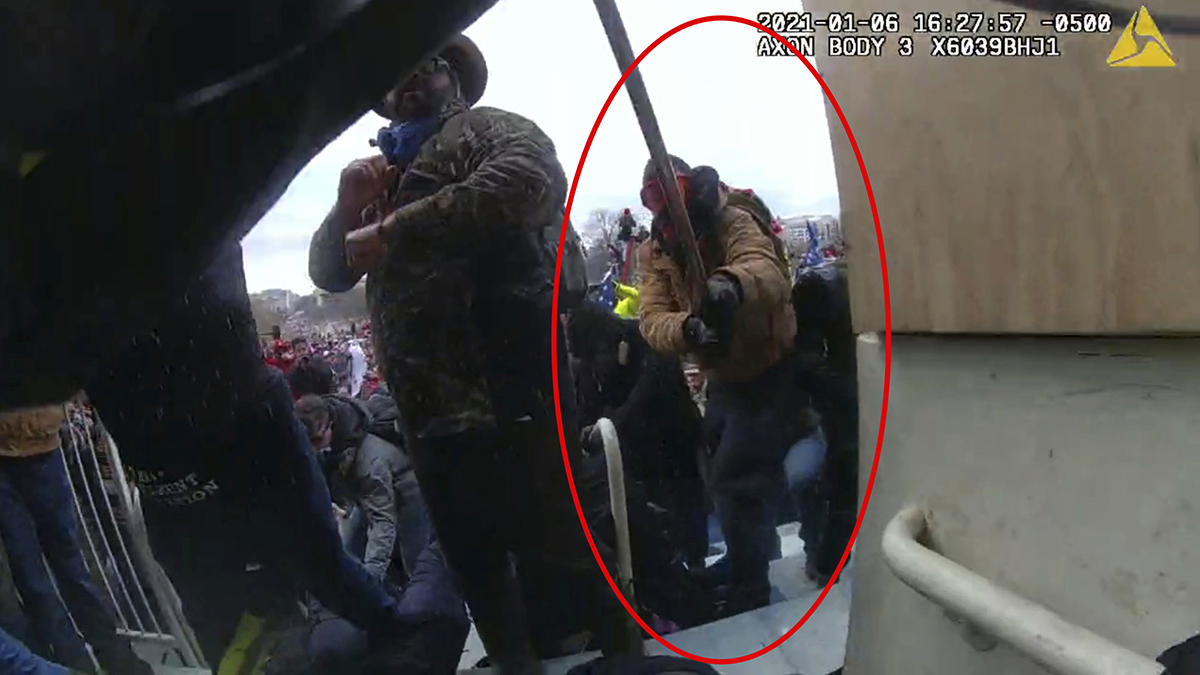Brandon Nelson was a straight-A student in high school, a UCLA grad and worked as an aerospace engineer. But shortly after college, he experienced a mental breakdown.
The 26-year-old was hospitalized and released to a residential mental health home in Southern California. He took his own life 24 hours after being admitted. His parents say Brandon's death could have been prevented and that state regulators failed them.
As she choked back tears, Brandon's mother, Rose Nelson, described her son as "very loving," "good" and "smart kid."
The UCLA engineering graduate had a bright future ahead of him, but he suddenly started struggling with mental health, his parents said.
"He was tossed around from hospitals to rehab centers. We knew nothing we were entering into," Rose Nelson said.
He was tossed around from hospitals to rehab centers. We knew nothing we were entering into.
Rose Nelson, Brandon's mother
Brandon was eventually discharged to a mental health facility named Sovereign Health in San Clemente. This is where he would kill himself.
U.S. & World
The house manager at Sovereign who made the 911 call "did not know the address of the facility, did not know Brandon's full name or age, was not properly trained, did not know how to perform CPR," Rose and Allen Nelson allege in a wrongful death lawsuit filed again Sovereign.
"Hey! Someone just hung themselves right here!" the caller can be heard telling the 911 dispatcher.
For 90 seconds, the dispatcher asks for a location and repeatedly tells the staffer to start CPR.
"Sir, we need you to start CPR, OK? So take a deep breath, quit talking and listen to County Fire," the dispatcher said in the 911 call.
Another patient at the home eventually performed CPR, even though the house manager was supposed to be trained.
The Nelsons lost their son Brandon in a place that was supposed to treat his mental illness. A traditional hospital had discharged him to Sovereign the day before he took his life, but this home was not licensed by the state of California as a residential facility or for mental health care.
"We had no idea what the mental health world looked like, and it's simply broken," Rose Nelson said.
Nearly a week before his death in March 2018, Brandon was placed on a psychiatric lockdown at Mission Hospital in Laguna Beach. A hearing determined "probable cause does exist" to hold him for a total of 14 days.
"We thought there'd be another 9 days," Allen Nelson said.
But 48 hours later, on March 7, 2018, "he [Brandon] was released by another doctor."
Mission Hospital said medical conditions are evaluated daily. A doctor determined "He [Brandon] is leaving the hospital at maximum hospital benefit." This means that the doctor did not believe Brandon was a danger to himself or others -- as long as he took his prescribed medication.
"These are heavy duty psychotic medications that you must take accordingly to prescriptions," Rose Nelson said.
Brandon was taking multiple psychiatric medications when he was discharged with orders for his prescriptions, but Sovereign didn't fill them until the next day.
"They never gave him his medications for 26 hours," Rose Nelson said.
Unbeknownst to the Nelsons, state and federal agents raided Sovereign offices 10 months earlier in June 2017. Federal investigators say the probe is ongoing. So far, no charges have been filed.
"I thought after the raid that they were going to close the doors," Desiree Ricchi, who worked in Sovereign's HR department, said.
When Brandon arrived at Sovereign, the company was hurting financially from the effects of the raid and investigation. A Sovereign manager said in court documents that the number of patients plummeted after that raid. Sovereign's manager detailed the loss in a legal document.
"Sometimes people would go without medications for days and especially at the end, because they had their own pharmacy, and they weren't paying the bills," Ricchi said.
The NBCLA I-Team asked Cary Quashan, who owns an unaffiliated rehab and mental health treatment company, to review Brandon's medical records.
"I think as soon as he started escalating and would not deescalate, 911 should have been called," Quashan said.
"We know that a lapse in the medication can cause a relapse in the mental illness that's going on, psychosis can come back, all kinds of things can happen," he added.
The NBCLA I-Team tried several times to reach a Sovereign Health representative for comment, but the business closed last July.
So who is accountable for Brandon's death? Our NBCLA I-Team found there are multiple agencies that oversee different aspects of treatment and facilities.
Quashan pointed to the need for federal regulation.
"I would think Washington (D.C.)," he said. "It needs to start from the top."
After Brandon's death, the Department of Social Services did investigate after receiving a complaint and found it was a community care facility operating without a license, which is illegal. When state investigators visited to notify Sovereign, the offices appeared to be closed and empty.
Close friends and family gathered to say a final goodbye to the boy who liked to help his dad cut the grass, go to concerts, and play football. Allen and Rose Nelson will never get to see their son blow out another birthday candle.
"This grief is unbearable and this should never happen to a parent," Rose Nelson said.
The Nelsons are working with state lawmakers to help improve oversight. The Orange County Board of Supervisors recently approved millions of dollars to create a unified treatment program, which includes Mission Hospital.



